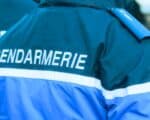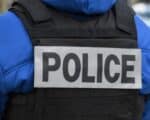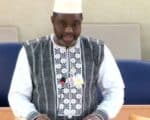>> Jim Gaylord was fired for being gay back in 1972. This week he received an apology from his former school district.
Jim Gaylord était professeur au « Wilson High School » dans l’Etat de Washington. Bien intégré socialement et pourtant très apprécié… après la tentative de suicide d’un jeune homosexuel, la police va apprendre que l’adolescent avait demandé quelques conseils à Jim Gaylord au sujet de son orientation sexuelle. Interrogé ensuite sur la question, l’enseignant aura préféré assumer sa sexualité devant sa hiérarchie, sans mentir, et… il a été licencié.
L’homme va évidemment réagir et se battre pour récupérer son poste… Il va d’ailleurs saisir la justice, mais il sera débouté. La Cour Suprême de l’État prendra en compte dans sa décision, une pétition diffusée bien après ses révélations forcées, mais signée par des étudiants et des parents mettant en cause son professionnalisme et sa capacité à enseigner.
A sa grande surprise, il y a quelques jours, le nouveau président du Conseil de l’établissement a estimé nécessaire de lui présenter des excuses :
Pour Jim Gaylord, actuellement âge de 76 ans, reconverti depuis en bibliothécaire, cette initiative « aide d’une manière relativement plaisante à mettre fin à une situation désagréable ».
Terrence Katchadourian
@stop_homophobie
>> Decades after being fired for being gay, a Washington teacher is receiving an apology from his former school district.
Jim Gaylord, once a respected social studies teacher at Wilson High School in Tacoma, was fired in 1972 after confirming rumors of his homosexuality to the school’s vice principal.
The Olympian reports that after the termination, Gaylord embarked on a prolonged legal battle that progressed to the state Supreme Court. Ultimately, he lost his suit against the school, after a judge ruled that the district was within its rights to fire a teacher for being gay due to now-debunked associations between homosexuality and sex crimes. Although he appealed to the U.S. Supreme Court, it declined to hear the case.
Forty-two years later, the Tacoma School District issued a formal apology to its outed and ousted employee.
“I offer a sincere apology to Mr. Jim Gaylord. Jim, thank you for continuing to teach us,” Kurt Miller, the Tacoma School Board president, said at a fundraiser Sunday for Oasis, a Tacoma-based LGBT center, in remarks recorded by Seattle TV station KIRO.
It’s a stark difference from the remarks of the assistant principal at Wilson High School in the ’70s, John Beer, who said during Gaylord’s trial, “I don’t believe a homosexual meets the standards, the professional standards, the community standards, that we would expect of a classroom teacher.”
Gaylord’s termination had followed the attempted suicide of a student of his, who had previously sought advice from the teacher regarding his attraction to other boys. Gaylord had not revealed his sexual orientation to the boy in the conversation which, he thought at the time, was “almost totally inconsequential.”
Nevertheless, a school administrator approached the unmarried Gaylord, and asked point-blank if he was gay. After responding in the affirmative, Gaylord received a letter November 21, 1972, that confirmed his end of employment.
“The specific probable cause for your discharge is that you have admitted occupying a public status that is incompatible with the conduct required of teachers in this district,” the letter read in part. “Specifically, that you have admitted being a publicly known homosexual.”
School district officials had decided to issue the apology for this act after a member of the Oasis youth council, Michelle Barroga, interviewed Gaylord about his struggle and brought his story to the attention of the program’s executive director, Seth Kirby. Kirby then asked Kurt Miller if an apology would be possible, to which Miller replied, “I’ll look into it. And yes, we can. And we will.”
Gaylord, who became a librarian after losing his job as a teacher, said the apology came as a bolt from the blue.
“Well, I tell you I never gave a great deal of thought to getting an apology, so this comes as a very pleasant surprise,” he said.
Addressing the crowd at the Sunday event, Miller took a conciliatory note, acknowledging that while the mistakes of the past cannot be undone, it is essential that they be recognized.
“We cannot make up for the mistakes of an unfortunate past, but we can at least acknowledge them and let those affected know that regret doesn’t end when the old guard moves on,” he said.


















